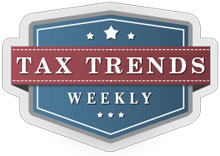Honesty Really Can Be the Best Policy
Throughout the 2000’s, the IRS and the Department of Justice have been watchful when it comes to Americans attempting to hide assets in Swiss banks. In 2009, Swiss-based bank UBS settled with federal authorities, paying a $780 million fine and agreeing to disclose the names of approximately 4,500 Americans holding secret Swiss bank accounts. In November 2009, the IRS announced that almost 15,000 U.S. taxpayers had voluntarily disclosed their Swiss accounts as a result of an amnesty program offered by the federal government as a result of the investigation into UBS.
The story of one of these 15,000 people stands out. Mary Estelle Curran, an elderly widow, had inherited a Swiss account from her financier husband upon his death in 2000. The amount in the account had grown to $43 million by 2007. After hearing about the IRS investigation of UBS, Curran contacted her attorney to determine whether she needed to take action to set matters right with the IRS. Unfortunately, her lawyer did not reveal the existence of the Swiss account until after the amnesty deadline had passed. By that time, the IRS had obtained Curran’s name from UBS. Because the IRS first learned of her account through UBS rather than through Curran or her attorney, the agency said Curran did not qualify for amnesty. It sought criminal penalties against Curran. Taking Curran’s good faith effort at compliance into account, the judge sentenced her to a mere five seconds of probation and encouraged her to seek a pardon.
Curran was certainly not blameless; she withheld the existence of her Swiss account from her accountant when he prepared her tax returns. She paid a $21 million fine as well as back taxes. But her story is memorable because it shows that a taxpayer who acts in good faith after questionable acts has a chance of getting the benefit of the doubt in court. In contrast, many Americans with secret Swiss accounts who were not as forthcoming as Curran face the possibility of a prison sentence.

